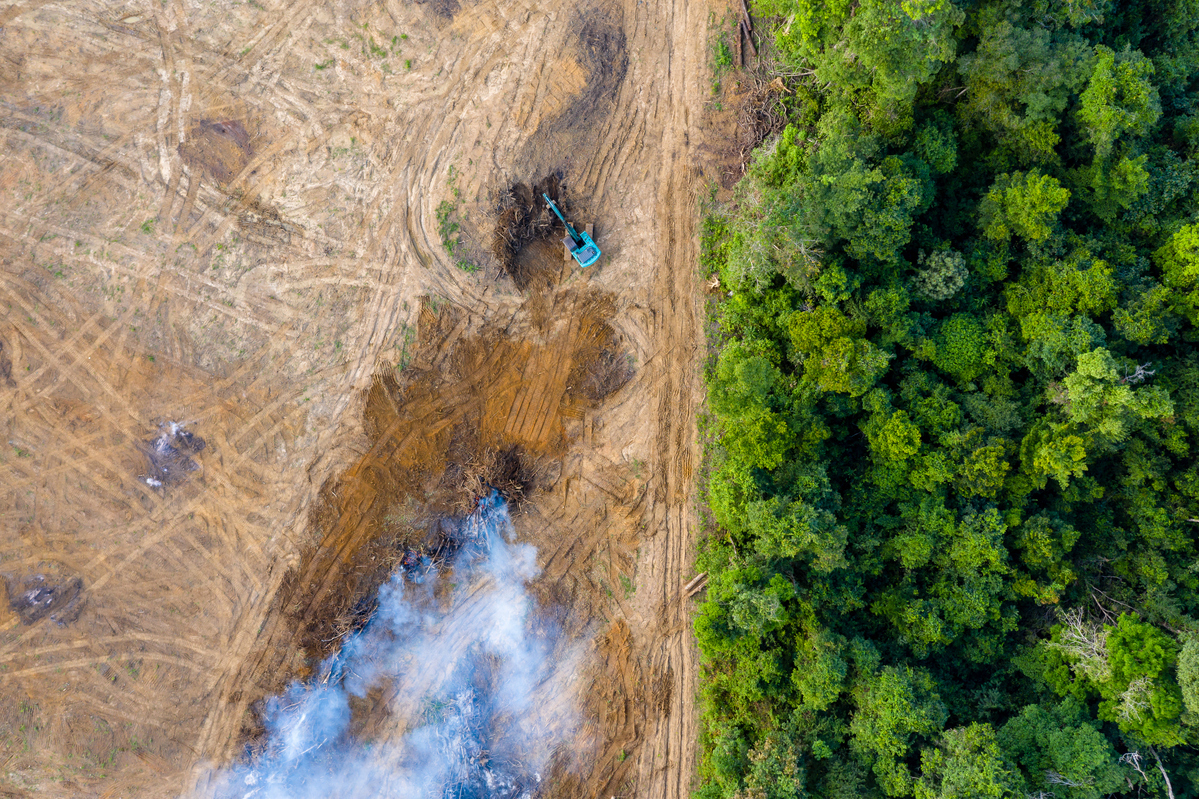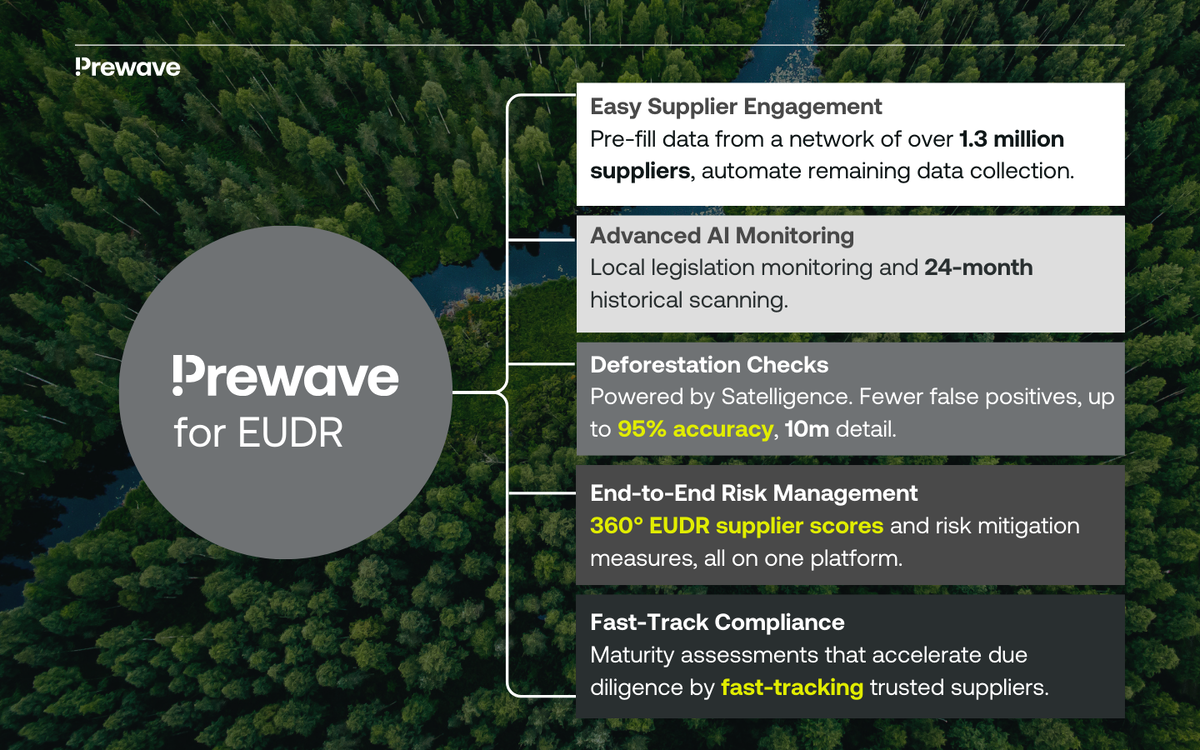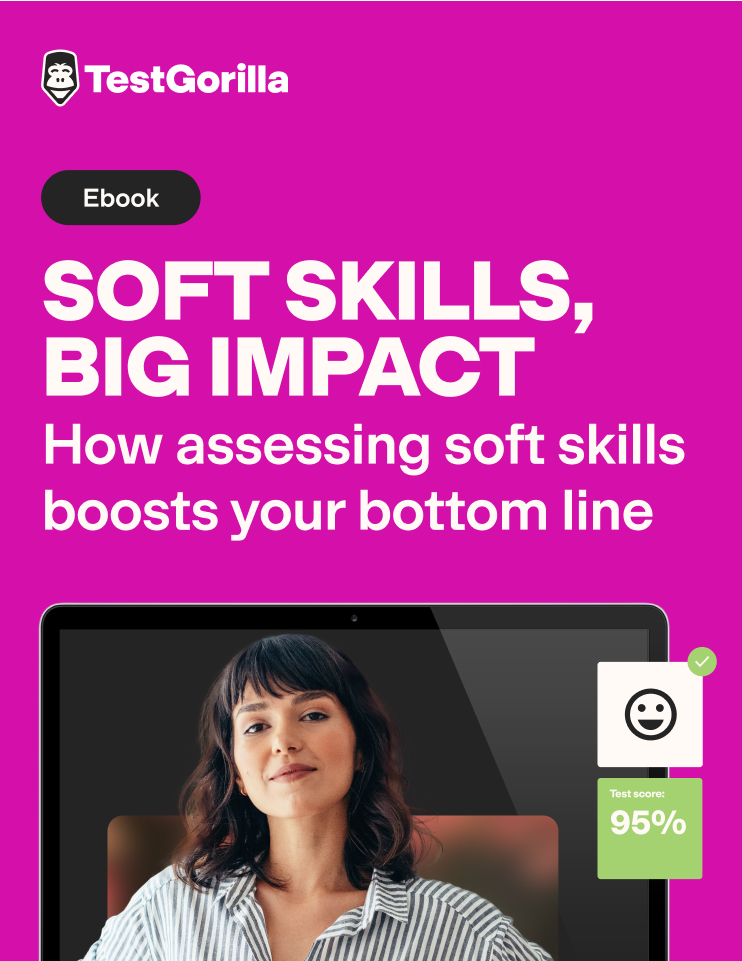The EUDR goes beyond Europe: why compliance is a global effort
Sponsored by PrewaveIt’s not just EU companies looking closely at the European Deforestation Regulation – lawmakers and tech leaders are changing the global compliance landscape

In just three months, the European Deforestation Regulation (EUDR) comes into force – and companies across the continent are locked into a race against time to ensure compliance. From 30 December 2024, traders of wood, cocoa, soy, palm oil, coffee, rubber and cattle in the EU must ensure “deforestation free” status for their supply chains.
The approaching deadline has provoked criticism on all sides: from Ethiopian smallholders to the US government. The fact that a European environmental law is causing ripples from Addis-Ababa to Washington, DC indicates a global shift in perspective for corporate governance: a notion that because companies are technologically capable of ensuring sustainability, they have a moral obligation to do so.
Surprisingly, EU-based companies – notably in the fashion and automotive industries – appear to be more in favour, reflecting a growing confidence in AI-powered supply chain monitoring to keep companies on the right side of the law, and of history.
Why EUDR matters for non-EU companies
Only 1 per cent of Europeans trust “big business” on the environment, and the EU is aware of its influence over the supply chains of its most recognisable products. From the steak in the brasseries of Paris to the tyres on the autobahns of Germany, companies that want to sell in Europe have a simple message from Brussels: comply or die.
Among the “proportionate and dissuasive” penalties for non-compliant operators are import prohibitions and fines of at least 4 per cent of total annual turnover in the EU – not to mention mitigation costs and reputational damage.
Whether or not non-European companies adjust to the EUDR, the global trend is towards harmonised legislation – and more of it. As with the UK’s Forest Risk Commodity Regulation (UKFRC), other regions may adopt the regulations (or parts thereof) into their national laws.
Using AI to solve EUDR compliance issues

Any arguments for or against the EUDR are now after the fact. Attention for companies that trade in-scope commodities now switches to compliance – and choosing the vendors that can help them achieve it.
Due to the highly specialised nature of the legislation, EUDR-specific compliance solutions are required. However, companies have one eye on compliance measures for upcoming regulations too. In Europe, the Corporate Sustainability Due Diligence Directive (CSDDD) is the obvious next step, but Canada’s Forced Labour and Child Labour in Supply Chains Act shows that governments on both sides of the Atlantic have supply chains in their sights.
At Prewave, we see the response to the EUDR as twofold. Our AI-powered supply chain management technology is central to our solution for EUDR compliance. However, we also want to help businesses worldwide solve compliance challenges in general – not just for this supply chain regulation, but for all of them.
Supplier management
To comply with the EUDR, companies need plot names and geolocations for every producer, confirmation that the producer complies with relevant local laws, and due diligence statements that support this. That’s a lot of data – even before you consider that producers may not be familiar with the EUDR or have the required information at hand.
Without AI, companies would need to chase suppliers for information manually. More likely, large firms would simply switch to larger suppliers and reduce their compliance burden. This would be catastrophic for small landowners, often in developing countries, who would be penalised through little fault of their own.
However, there are ways to avoid this, especially with the big-data capacities of AI systems. For example, with the Prewave solution, companies can use the advanced supplier engagement module to request product origin data with minimal manual input. Likewise, a large database of over 1.3 million pre-existing suppliers reduces duplicate work: the network effects of a connected risk landscape are beneficial to everyone.
Risk management
The EUDR mandates risk assessments for all in-scope commodities, covering country and industry-specific risk factors. While it may appear arduous, this is one key area where regulation and best practice overlap. Although supplier risk scoring is commonplace, it isn’t ubiquitous, increasing exposure for companies that still don’t use it.
At Prewave, we provide an EUDR-specific, 360-degree risk score based on country and industry factors, as well as an analysis of millions of news events per day. This isn’t something that just “happens” – our AI has been trained over 13 years to recognise and prioritise different types of events. In the EUDR’s case, those events involve non-negligible deforestation risks, but the system can be used to monitor natural disasters, human rights violations and more.
Satellite false positives
Related to risk management is the problem of satellite false positives. The EUDR risk management process involves verification of geolocations to prove that they weren’t classified as forest after a 2020 cut-off date. However, there’s a problem: the imagery from the EU’s own forest observatory satellites isn’t very good.
Open-source satellite imagery tends to classify all trees as forest, which means that false positives are common in areas where non-forest is cleared to cultivate in-scope commodities. This is a problem for everyone involved: for the supplier that needs to find an alternative producer to ensure compliance, and for the producer that is blocked from the EU market through system error.
In the age of AI, technological problems have technological solutions. Instead of error-prone streams, Prewave works with Satelligence (recognised as the Best Product 2024 for EUDR by EUSPA) to ensure greater accuracy, fewer false positives and a better deal for everyone. The data from Satelligence is certified as audit-ready, meaning companies can focus less on compliance processes and more on core business.
The EUDR is just the beginning
With the exact form of the legislation set to be finalised, companies inside and outside the EU must adapt to a new regulatory landscape. However, with AI-powered supply chain management solutions, companies can prepare for the EUDR while ensuring compliance with future regulations too.
Are your company’s supply chains ready for the 30 December deadline? Talk to an expert about Prewave’s end-to-end EUDR compliance solution.
Harald Nitschinger, CEO and cofounder, Prewave

Business Reporter Team
Most Viewed
Winston House, 3rd Floor, Units 306-309, 2-4 Dollis Park, London, N3 1HF
23-29 Hendon Lane, London, N3 1RT
020 8349 4363
© 2025, Lyonsdown Limited. Business Reporter® is a registered trademark of Lyonsdown Ltd. VAT registration number: 830519543





